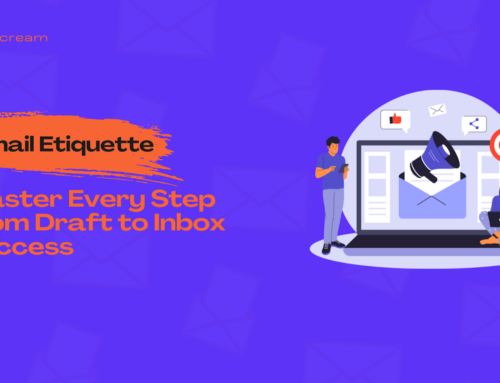Ever wondered how small startups can stand strong in front of big brands with unlimited money and resources?
It may sound tough, but today, it’s totally possible—thanks to Artificial Intelligence (AI). Earlier, only big companies could afford high-end tools, huge teams, and large marketing budgets. But now, AI has changed the game. Startups can use AI tools to become smarter, faster, and even more efficient than large corporations. Whether it’s automating tasks, improving decision-making, or enhancing customer support with chatbots, AI-powered solutions are making it easier than ever for small businesses to scale. From machine learning to AI-driven analytics, startups can now leverage AI to boost productivity and performance. This also helps them optimize processes, cut costs, and compete in the fast-growing AI market. Even in industries like e-commerce and SaaS, smart AI models are helping founders build better products and services.
So, let’s talk about how startups can compete with big brands using the power of AI. We’ll keep it simple, friendly, and practical. And yes, we’ll also hear from a couple of industry experts who are already doing this successfully by leveraging AI in smart ways to truly help startups grow and innovate.

What AI tools can help small businesses achieve the efficiency of large corporations?
If you’re running a startup, you probably wear many hats. One day you’re the marketer, the next day the sales manager, and sometimes even the IT guy. That’s where Artificial Intelligence (AI) comes in handy—it helps you save time, energy, and money by handling many tasks for you. Today, there’s an AI revolution happening, and startups must make the most of it. AI can help streamline operations, improve customer interactions, make smarter pricing strategies, and enhance AI brand monitoring by tracking online mentions, customer sentiment, and competitor moves in real time. With the rise of AI startups, even small businesses can build smart AI products, protect their brand reputation, and grow faster.
Here are some popular AI tools, AI platforms, and AI applications that can give your business a competitive edge and help you compete with big brands using smart AI strategies:
-
ChatGPT or Claude: Great AI solutions for writing emails, social media posts, blogs, and customer support replies using generative AI.
-
HubSpot’s CRM: A powerful AI system to manage customers, automate follow-ups, and improve relationships.
-
Walter Writes AI: A tool to detect and humanize AI text Ideal for startups and content teams looking to humanize AI-generated content, align messaging with brand tone, and ensure authenticity across channels.
-
Mailchimp: Useful for email marketing and running targeted campaigns with the help of AI.
-
Canva and DALL·E: These tools allow you to create stunning visuals using AI development and creative AI algorithms.
-
Zapier: Helps you connect apps and automate simple workflows, allowing startups to save time and reduce manual work.
-
Trello or Asana: These are perfect for startups often juggling many tasks—they use AI to simplify project management.
All these startup tools like the ones above are easy to use, even if you’re not from a tech background. Whether you choose open-source AI or paid solutions, you can quickly integrate AI into your business. This enables startups to work faster, smarter, and better. Startups can use AI to do more with less. Simply put, startups can leverage AI to stay ahead and grow. And yes, startups can compete with big tech companies—thanks to these smart tools and strategies.
Can AI-driven marketing strategies outperform traditional advertising?
This is a big question. Traditional ads like TV, radio, or newspaper cost a lot and don’t always reach the right people. AI-driven marketing, on the other hand, is smarter. It targets only those people who are actually interested in your product or service.
You can use AI to:
-
Send personalised emails to your customers.
-
Show ads only to people who are likely to buy.
-
Analyse which marketing method is giving the best results.
-
Predict customer behaviour and needs.
-
Save money by avoiding wasted efforts.
Here is what Jason Rowe, founder of Hello Electrical, says about this:
“AI-powered tools like HubSpot’s CRM and Mailchimp have been instrumental in automating marketing efforts. These platforms help us target the right audience with personalized email campaigns and track customer interactions, improving our marketing efficiency. Since we integrated these tools, we’ve seen a 17% increase in customer engagement and a 12% jump in email click-through rates. AI-driven marketing strategies are now a key part of our approach, and they definitely outperform traditional advertising by offering more precise targeting and better ROI.”
So yes, AI-driven marketing is not just a trend—it actually gives better results and saves your money.
How does AI-powered automation reduce operational costs for startups?
Let’s be honest—most startups don’t have extra staff to do all the routine tasks. Things like scheduling, replying to emails, making reports, or managing projects can take up a lot of your time. AI helps you automate all these boring and repetitive jobs.
With AI, you can:
-
Automate customer support using chatbots.
-
Assign and track tasks using tools like Trello or Asana.
-
Automate daily reports, reminders, and follow-ups.
-
Connect different apps to reduce manual work using Zapier.
Here is what Dan Gower from Sketch Development Services (sketchdev.io) says about this:
“One of the best ways marketers can reduce operational costs and improve marketing efficiency is by using AI to repurpose content. That is, write one blog post, then use AI to automatically turn it into a handful of social posts, emails, and more. Content marketers have been doing this for years to save time and money while beefing up their content strategies.
Now, AI can do a lot of the work to make it even faster. There are a bunch of options, too: HubSpot’s Content Hub, ChatGPT, Claude, and so on. You can even use AI to generate images to go with your content. My recommendation is to write the longest piece of content yourself (to make sure you’re supplying the AI with good information), then let it slice your main post into smaller content types.”
And here’s another insight from Jason Rowe again on automation:
“In terms of reducing operational costs, AI-powered automation tools like Trello for project management and Zapier for integrating various platforms have helped streamline day-to-day tasks. These tools allow us to automate routine processes, such as scheduling, task assignments, and reporting, which has helped cut time spent on administrative work by 22%. For startups, this means fewer employees are needed to handle repetitive tasks, leading to lower overhead costs and greater operational efficiency.”
So, the bottom line is—AI lets you work smarter, not harder.

Processed with VSCO with a4 preset
Smarter Decisions with AI-Based Data Insights
In today’s world, it’s data that gives you that power—especially for startups. But raw data alone is not enough. It needs to be understood, analysed, and used smartly. This is where the rise of AI is truly helping businesses grow. In fact, startups can gain a serious edge by developing custom AI-powered solution to understand their target audience, track buying patterns, and improve decision-making. While tech companies and tech giants like Google and Amazon have been using such tools for years, now even small teams can do the same—thanks to cutting-edge AI tools like ChatGPT, HubSpot, or Google Analytics AI. To further enhance data-driven decision-making, integrating Google or Amazon scraper feeds AI systems with up-to-date product, pricing, and market information, making insights more accurate and actionable for real-time strategy adjustments.
Let’s take an example. A small healthcare startup wanted to launch a new service. But instead of guessing what people needed, they used ai tools like customer insight platforms and ai models tailored to their industry. These ai-powered tools showed which services were in demand, what users complained about, and even predicted future needs. Isn’t that amazing? With this knowledge, they adjusted their product, crafted a better campaign, and reached the right people. This is how AI enables startups to make smarter decisions—without needing big teams or budgets like the giants like Tata or Infosys.
In this fast-growing ai landscape, even though startups often struggle with limited resources, adopting AI the right way opens new doors. With the help of ai capabilities and ai to enhance customer experience, startups can build strong systems and processes. You don’t need to chase every trend—just use the specialized AI tools that suit your business. Whether it’s ethical AI, multiple AI platforms, or top AI systems, there’s something for every business. The potential of AI is huge, and if you learn how startups in different sectors, especially tech companies, are doing it, you’ll know that even small players can win big. So, discover how startups are entering the AI space with confidence and see how startups can thrive—even when facing giants like Microsoft or Meta—with the right approach to AI.
The Future of Small Startups with Big AI Power
“Even a small spark can start a big fire.” That’s exactly what we’re seeing with small startups today—especially those that are implementing AI smartly. In the past, only large tech companies had access to high-level tools. But now, with the AI boom, even smaller businesses can think big and act smart. Whether you’re running an online shop, a local service, or a growing app, you can use AI to analyze customer needs, spot trends, and gain a competitive edge over established brands.
Let’s talk about a real situation. A young e-commerce startup was struggling to keep up with giants like Amazon. But they took a bold step—they started deploying AI tools to understand customer behaviour, improve their website’s performance, and even fix delivery issues. Slowly, things changed. Sales picked up, and more people started returning to their platform. This shows how AI plays a big role in helping startups to compete in today’s world.
Here’s how startups looking to grow can use AI smartly:
-
Use AI to analyze customer feedback and improve services
-
Implementing AI to automate everyday tasks saves time and effort
-
AI can analyze large data sets to predict market demand
-
AI to improve user experience through chatbots and personalization
-
Smart use of AI helps in creating better marketing strategies
In the coming years, general AI and sophisticated AI will become more affordable and easier to use. And startups that embrace AI early will be the ones who grow faster, no matter how many startups face challenges. So, don’t wait to get as big as companies using billion-dollar software—just be smart and start implementing AI in your own way. That’s how startups can use AI to compete with big brands and build their own space in the market.

